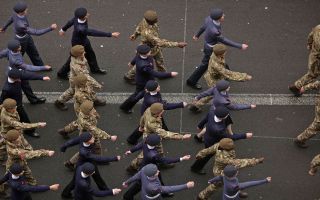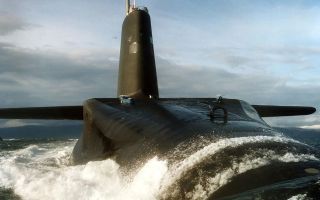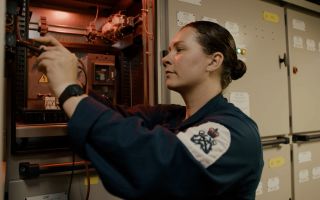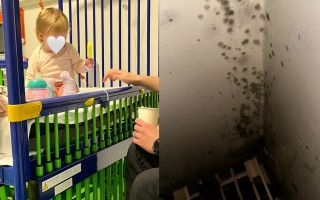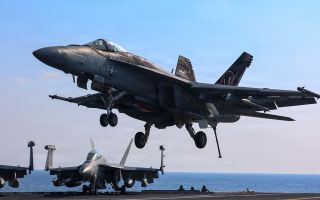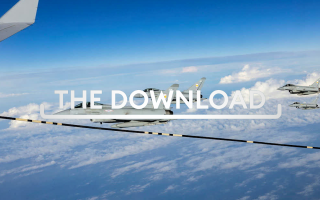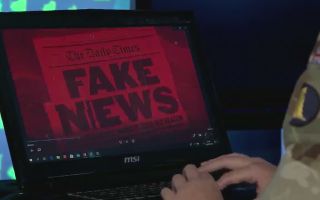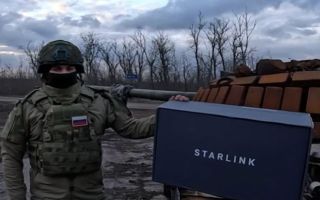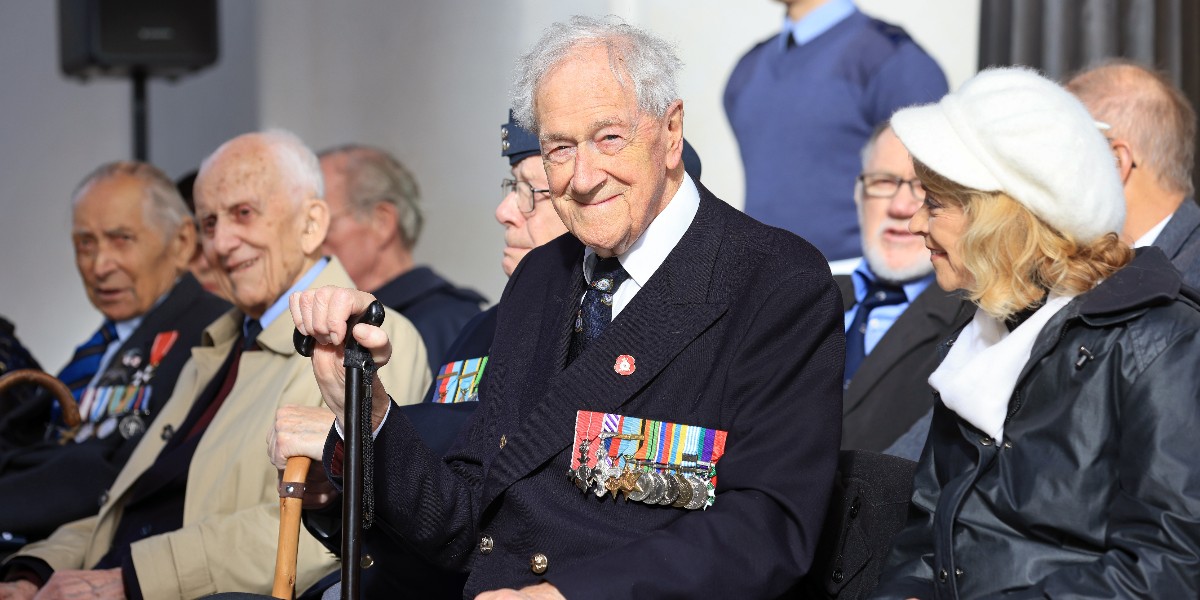
An honourable, brave man: Tributes paid to Bomber Command legend John Bell

Tributes have been pouring in on social media to Wing Commander John Bell who has died just days before his 101st birthday.
Wg Cdr Bell, a Distinguished Flying Cross and Legion d’Honneur recipient, served as a bomb-aimer in 617 Squadron during the Second World War and was one of the last surviving Bomber Command veterans to have served during the six-year conflict.
Speaking on Remembrance Day in 2022 to the RAF Benevolent Fund, Wg Cdr Bell said when he joined the Royal Air Force he had one thing in mind: "The aircraft from Germany, flying over London, were going to get something back when I joined."
Former RAF navigator and Gulf War veteran John Nichol shared photos of himself with the late Bomber Command veteran on X, expressing his grief at his passing, saying: "He was of that generation of warriors who sacrificed so much for our country.
"We enjoyed many chats & red wines; he was a good, honourable, brave man."
Mr Nichol also added something Wg Cdr Bell had mentioned to him: "I am proud of my service. I survived. I was lucky."
At 6 feet 4 inches, Londoner Wg Cdr Bell was considered too tall to be a pilot, so he trained in South Africa as an observer, combining the roles of navigator, bomb-aimer and gunner.
He was posted as a bomb-aimer on his return to the UK in early 1943 and joined a crew captained by Flying Officer Bob Knights.
Following their conversion training, the crew was posted to 619 Squadron, based at Woodhall Spa.
On 24 July 1943, the crew flew its first operation to Hamburg and the following winter flew to Berlin eight times.
Following an interview with Wing Commander Leonard Cheshire, the crew joined 617 Squadron in January 1944 in an attempt to stay together.
Wg Cdr Bell and his crew carried out several risky operations, including attacks on viaducts, a railway tunnel, V-weapon sites plus E-boat and U-boat pens.
They also played a vital role in the D-Day invasion.
In an interview with the RAF Benevolent Fund before his death, he said: "It’s important that the men of Bomber Command are remembered for their role in D-Day.
"Bomber Command was a crucial part of the operation behind the lines in bombing rail tunnels and other installations which would prevent the supply of reinforcements to the invasion area.
"Our involvement was terribly important for the success of the operation and to be involved was a great honour for the squadron."
When Wg Cdr Bell had completed a total of 50 operations he was awarded the Distinguished Flying Cross and allowed to step back from operations
He trained as a photographic interpreter before moving into the world of intelligence, and for 25 years served at RAF Nuneham Park in Oxfordshire, Singapore and Washington.
Wg Cdr Bell also worked with the US Air Force at Kimpo Air Base in Seoul during the Korean War when the Americans were short of specialist personnel.
He was awarded an MBE for his service in the 1970 New Year Honours List and retired from the RAF in March 1977.
In March 2016 he received the Legion d’Honneur from the French Consul, recognising his bravery and commitment during the Second World War, including his role in precision attacks against factories in occupied France and Belgium with 617 Squadron.
He was a huge supporter of the RAF Benevolent Fund. As part of a Sussex Bomber Command veterans' group, he held regular reunions, book signings and respite weekends with the fund.
Wg Cdr Bell also played a significant role in raising funds to build a memorial to commemorate the 55,537 Bomber Command crew who lost their lives in the Second World War.
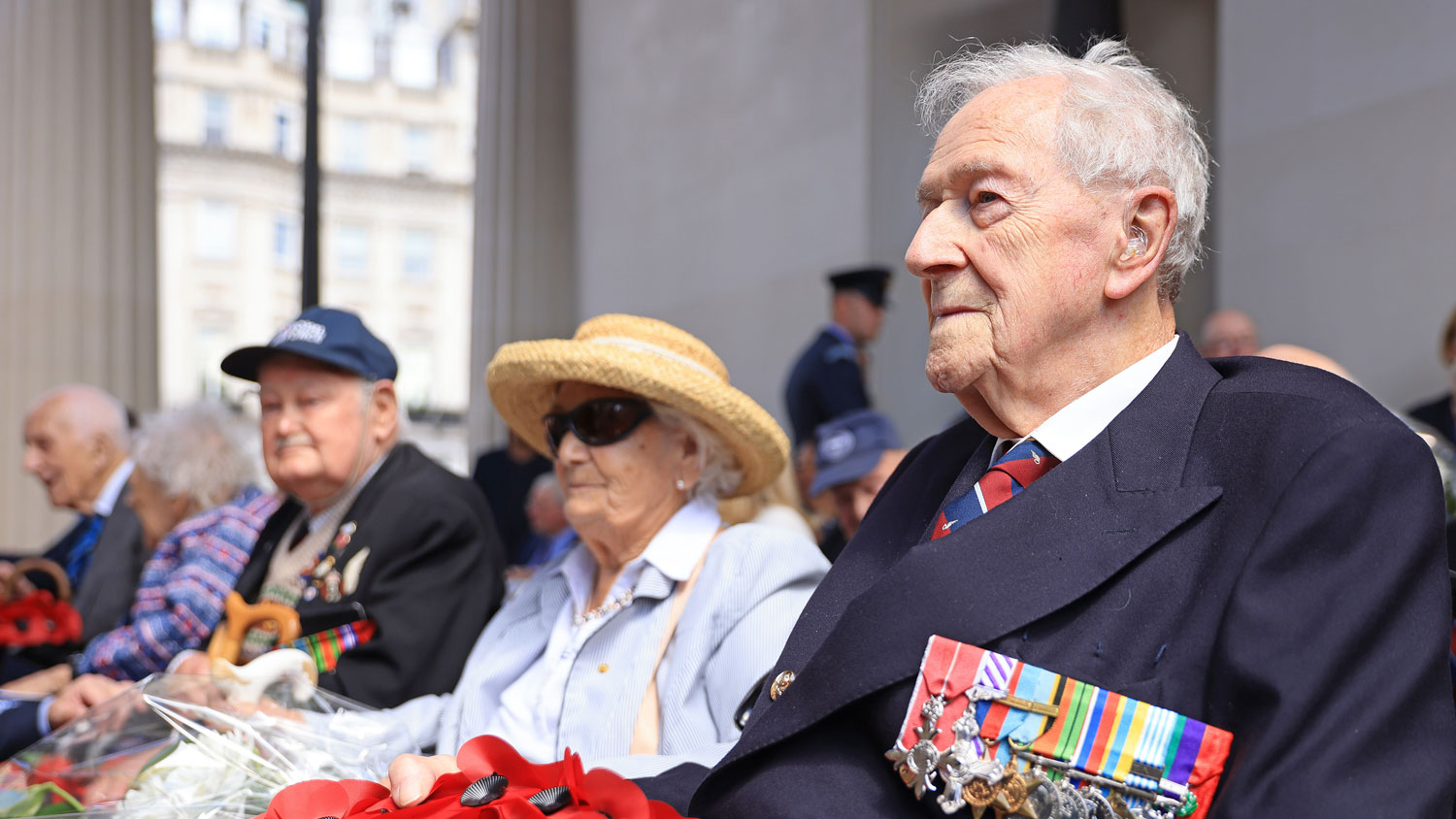
Air Vice Marshal Chris Elliot, controller of the RAF Benevolent Fund, said: "We are deeply saddened to learn of the passing of John.
"He was a treasured member of the RAF family, not only in his remarkable courage and skill as a part of Bomber Command crew defending our nation through the hardest times, but also in his generous support of the fund. For that we are incredibly grateful.
"The heroism of the Bomber Command veterans inspired a nation during the war and continues to today.
"John and his fellow airmen embody the values of the Royal Air Force which the fund exists to support; brave, humble and selfless."

